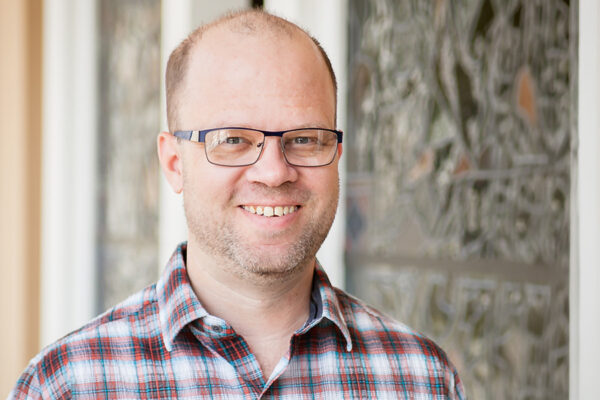Word & service
St. Paul counts five deacons among its active membership. Deacons serve in congregations and other ministries of the ELCA.
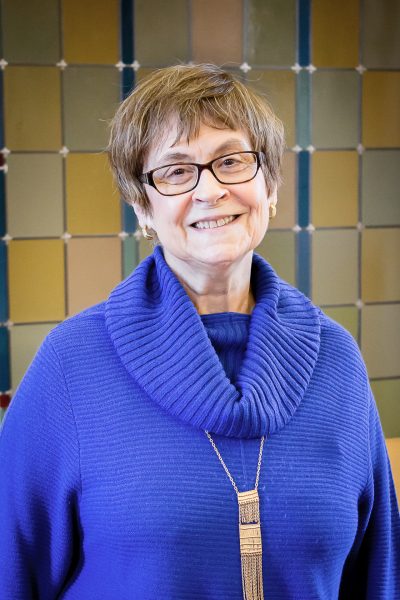
DEEP GLADNESS
I’m an accidental deacon. Frederick Buechner famously wrote, “The place God calls you to is the place where your deep gladness and the world’s hunger meet.” So, in 1985 when my children were in school and I was ready to return to some kind of employment, I knew my “deep gladness” was found in volunteering at church. I didn’t feel a call to be a pastor but heard there was a certification process for “lay professional,” a forerunner to the office of deacon. My first appointment was parish educator at St. Paul. Later I served as a congregational care associate at Zion, Davenport, before finding my vocational home as a hospital chaplain.
As a chaplain, I was privileged to participate in bringing God’s comfort and gracious presence into the lives of struggling people from diverse backgrounds. Through the wider church, I was required to reflect on my call, receive seminary level training, and be held accountable to the standards and wisdom of the Lutheran Christian tradition. Being a deacon gave me the flexibility to serve in a variety of settings. Having an examined, informed identity as a Christian leader gave me the theological underpinning and support to serve faithfully over the years. I am deeply grateful to God, many mentors, and the church for the opportunity to have been a deacon, accidentally or not. — Lynn Batcher
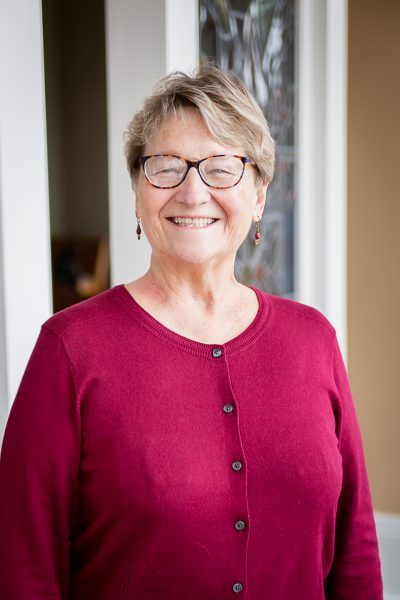
THE LARGER CHURCH
In the early 1980s, I accepted an invitation to take the position of youth education director at Trinity Lutheran Church in Moline. What I wasn’t anticipating was how much I would love it. This unexpected awareness began to inform my work, along with the realization that I had a passion and a knack for it. Because of my relationship with the synod, I was aware of the work of the “larger” church and its importance in extending the Gospel message to the whole world. This broader ministry, in all its expressions and involving thousands locally and globally, captured my attention and my heart — the beginning of a sense of call. I wanted to be connected with this work and its people. So I entered a preparation process that culminated in a formal call from the congregation I was serving.
We fill specific roles for specific areas of ministry alongside ordained pastors and most importantly, the people who make up the congregations. It’s this powerful relationship with the community
of God’s people that has welcomed and supported me over the years. While I am now retired, my “Letter of Call” hangs prominently in our study at home. It symbolizes the continuity of connection with the communion of saints, no matter my title or whereabouts. This relationship is living and active. It has spirited my work and my life all along. — Nancy Ingelson
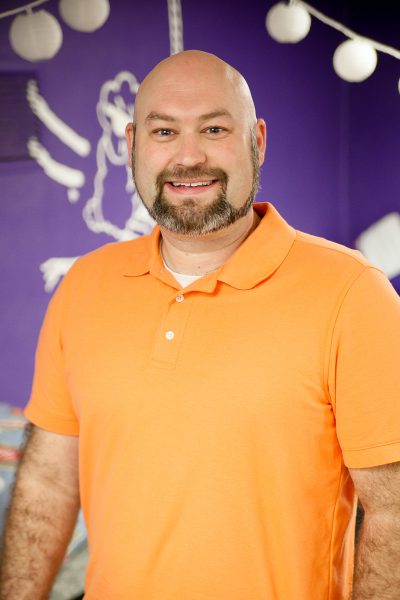
WALKING ALONGSIDE TEENAGERS
Fifteen years ago, as I entered the candidacy process for the ELCA, I didn’t really know what I was doing. I knew that my college days were coming to an end and the life that I had picked out for myself, including a professional career working in state parks, was wrong. There was a conflict between what I thought I wanted and what God wanted for me, made more obvious every
passing moment on my internships.
The interviews, reflection time, and affirmation from my support system helped me realize what it meant to be called into a vocation that serves God with my work life. My initial hesitancy was grounded in my perceptions about church work and what it meant to be a pastor. As I worked through the candidacy process it became clearer to me that I wasn’t meant to be a traditional pastor. Instead, my life experience, passion, and education had cultivated a deep affection and appreciation for young people.
Walking alongside teenagers means providing steady comfort and words of encouragement and hope while they deal with the crises of identity formation. I think the mess of hormones, anxiety, decisions, and drama is a perfect place for God to show up. As a minister to them, I want to fill their lives with positive adult relationships and remind them of God’s holy words during their struggle. — Andy Langdon
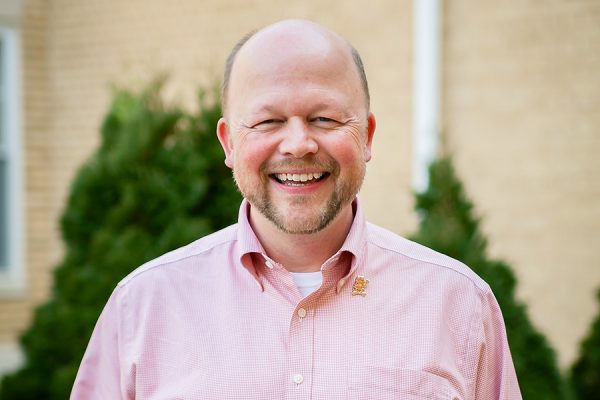
PART OF MY IDENTITY
In my tiny bedroom on Cypress Drive in Bettendorf, I used to practice being a teacher. Each weekend I would line up my stuffed animals and teach them a variety of topics. My vocational journey has never intersected with being the classroom teacher that was the dream of my childhood. Instead it has aligned with my calling as a deacon.
As a deacon, I’m called to serve the church through living the example of the Lord and caring for the needs of my neighbors. Being a deacon is part of my identity.
As a sophomore at Clarke College, I went on my first mission trip. In a rented van packed with 12 inquisitive college youth and one nun, we headed into the hills of Harlan County, Kentucky. We spent hours washing coal dust from tin-covered houses, polishing church pews and pulling out trash from the creek that lined the highway. The Catholic nun on that trip, Sister Kathy, guided me into my calling because of my desire to serve the poor and love of the liturgy.
Today, as a deacon and registered nurse, I serve my community as a nurse leader at Genesis. Through this role, I get to provide leadership and spiritual steadiness to a community of health care providers who are daily meeting the complex needs of our community. — Joel Moore
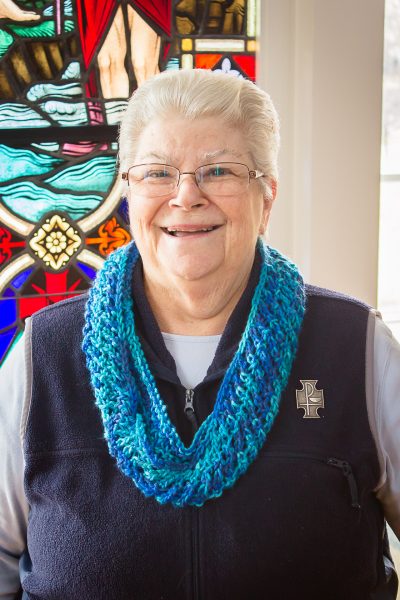
DIACONIA MEANS SERVICE
I have always felt that I had a calling even when I couldn’t put words to it. Nor could I even guess as to what that calling was. Early on, my niece kept telling me I should be a deaconess even before she became one. I didn’t really know what a deaconess was. After ending two different careers, doing much praying, and a lot of talking to pastors, I decided to apply. While doing my studies at Wartburg Seminary, I discovered two main areas that really filled my heart with joy: facilitating adults in Bible studies and listening and sharing with those who struggled with faith issues and unworthiness. Having struggled mightily with worries like those and discovering God’s deep love and mercy for me, I could readily understand their fear and pain.
Being a deacon connects to the Greek word diaconia, which means service. Being able to serve others helps us both. Others seem to derive benefits for themselves and as I use my spiritual gifts, I receive joy and completeness from the time I spend with them. I believe faith grows that way with each other.
God has led me on this journey and given me wonderful people to help me — Lynn Batcher was my spiritual guide while in training. I am deeply thankful and want to share God’s love with others.— Judy Schroeder

